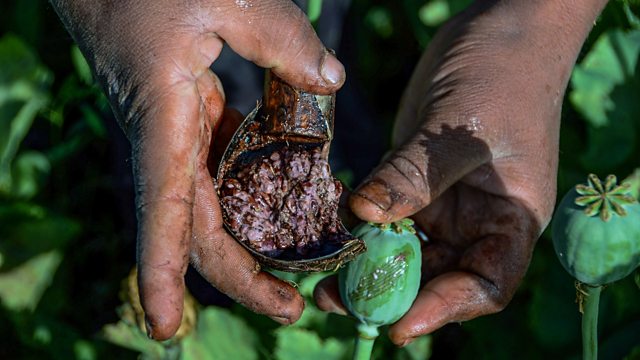UN: ‚ÄėAfghanistan opium supply drops 95%‚Äô
UNODC chief says farmers have switched to cereals, mostly wheat, which has cost them about US$1 billion.
The United Nations Office on Drugs and Crime (UNODC) says poppy cultivation and opium production have plunged almost 95% percent in Afghanistan since the Taliban banned the crop last year.
UN officials said that while this trend could help in the fight against the illicit opium trade, it also presented risks to a population that has long depended on the poppy trade for their livelihood.
Angela Me is the chief of research at the United Nations Office on Drugs and Crime. She told Newsday they reached this conclusion after monitoring ‚Äú900 satellite images‚ÄĚ of poppy fields in Afghanistan. She says farmers have turned to ‚Äúcereals, mostly wheat‚ÄĚ, and that this is ‚Äúa huge loss for the farmers because opium clearly is much more profitable than wheat‚Ķwe estimated that in the four main producing provinces, farmers lost about $1billion US dollars‚ĶWe need to support the farmers to make this drop sustainable.‚ÄĚ
(Picture: Shows a worker collecting poppy tears, a raw form of opium at a plantation in Zhari district in Kandahar on March 28th 2022.)
Duration:
This clip is from
More clips from Newsday
-
![]()
Liam Payne: Fans mourn death of One Direction singer
Duration: 03:35
-
![]()
Sudan's footballers provide 'joy amongst the chaos'
Duration: 04:00






